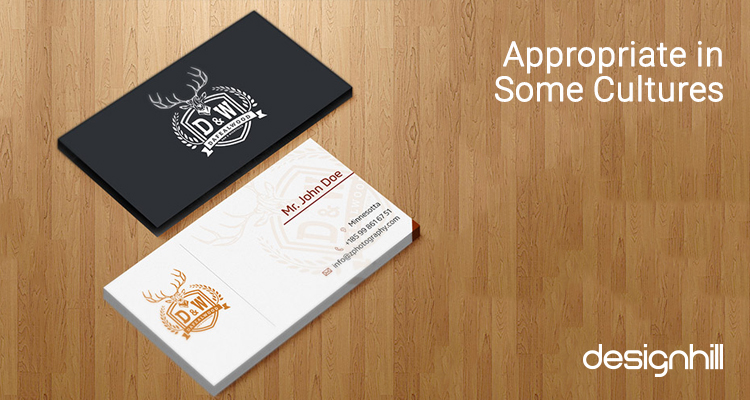In today’s fast-paced, digital-centric world, many business interactions happen online. However, there’s still something irreplaceable about a physical business card. Custom business cards are an essential part of networking, leaving a lasting impression that a virtual contact or email cannot replicate. A well-crafted card speaks volumes about your professionalism, brand values, and creativity.
Why Custom Business Cards
MatterCustom business cards go beyond just listing your name and contact details. They are an extension of your brand and play a pivotal role in forming that all-important first impression. When designed thoughtfully, they can communicate the personality of your brand, whether it’s sleek and modern or creative and unconventional.
A custom design provides flexibility, allowing you to incorporate your brand colors, logo, and elements that represent your industry. For instance, if you’re a graphic designer, your card should showcase your creative skills through unique designs or innovative materials. If you’re in corporate services like consulting, law, or finance, a minimalist, elegant card with high-quality materials will send the right message of professionalism and trust.
Advantages of Custom Business
CardsThere are several reasons why custom business cards are still a powerful tool for business growth:
1.First Impressions Matter: A memorable business card ensures that the person you meet will remember you. A unique design sets you apart from the competition and speaks directly to the professionalism of your business.
2.Brand Consistency: Custom business cards allow for complete control over the design, ensuring that your business card is consistent with other branded materials like your website, brochures, or signage. This helps reinforce brand recognition and trustworthiness.
3.Versatile Communication: In addition to contact information, custom business cards can include QR codes linking to your website, social media handles, or portfolios, making it easier for potential clients to connect with you.
4.Personalization: Custom cards allow you to tailor the design specifically to your target audience or the industry you work in. For example, professionals in the creative field may opt for bold, colorful designs, while those in corporate industries might choose a more refined, minimalist approach.
How to Design the Perfect Custom Business Card
Designing a business card is more than slapp 3rding your logo on a piece of paper. To make the most of your custom business cards, consider the following tips:
1.Choose the Right Layout: The layout should be clear and easy to read. Avoid overcrowding the card with too much information, and focus on the essentials—name, title, contact details, and perhaps a tagline or logo.
2.Use High-Quality Materials: The feel of the card is just as important as the design. Opt for sturdy cardstock or special materials like textured paper, metal, or plastic. High-quality paper suggests professionalism, while eco-friendly materials appeal to environmentally conscious consumers.
3.Focus on Branding: Incorporate your brand’s colors, fonts, and logo to create a cohesive and recognizable design. Ensure that the card’s overall look reflects your brand values. If your business values creativity, a vibrant and artistic design may be suitable. On the other hand, a simple, clean layout may work better for businesses focused on professionalism and trust.
4.Add Unique Elements: Consider adding unique features like embossed text, foil stamping, or custom shapes. These elements not only make your card more visually appealing but also more tactile, making it memorable when someone picks it up.
Industry-Specific Custom Business Cards
Different industries may call for different styles of custom business cards. Here are a few examples of how certain industries can benefit from specific design choices:
• Creative Industries: Designers, artists, and photographers often use their business cards as an opportunity to display their creative skills. Custom shapes, bold colors, and innovative design techniques can help reflect their creative mindset.
• Corporate Services: Lawyers, financial advisors, and consultants may prefer a minimalist design with subtle branding, emphasizing professionalism and reliability. Premium paper or understated designs, such as foil accents or embossed logos, lend credibility.
• Hospitality and Retail: Business cards for restaurants, boutiques, or hotels might incorporate warm colors or imagery that reflects their offerings, helping to create an inviting feel that resonates with their target market.
Why Custom Business Cards Are Still Relevant
Despite the rise of digital business tools, custom business cards remain a vital part of business networking. Handing someone a well-designed card creates a personal connection that digital methods can’t replicate. It’s a tangible reminder of who you are and what your brand stands for. Moreover, having a card at the ready shows you are prepared and professional, qualities that leave a lasting impression.
Conclusion
Custom business cards are more than just a tool for sharing contact information. They are a representation of your brand’s identity and values. A thoughtfully designed, high-quality card communicates professionalism, creativity, and attention to detail, leaving a lasting impression on potential clients and partners. As businesses continue to evolve in the digital age, custom business cards remain an essential tool for networking, brand recognition, and personal connection.
